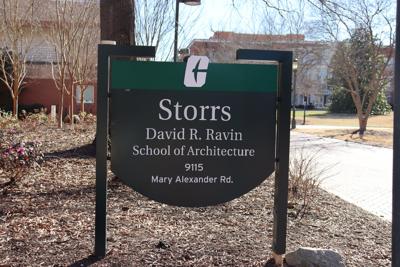As budgets are crunched, and priorities in education funding are made, the arts and humanities are too often the first cut. The cultural commitment to science, technology, engineering and math (STEM) fields as the most favored path forward for students misunderstands the function of the humanities field.
This aversion to funding the humanities in favor of STEM has deprived people of a full education and contributed to the country's economic problems.
Although often seen as less useful, the humanities are essential for understanding our world. By studying the humanities, we learn more about ourselves and each other. Skills like critical thinking, empathy and understanding come from studying the cultural productions and traditions of others. Deprioritizing or cutting these programs further severs the academy and culture from its ability to connect with others.
"Our understanding of who we are is something we get through the arts like music, literature and so on," said Dr. Matthew Rowney, an English professor at UNC Charlotte. "Because we push those aside in the academy as frivolous or not as important, then we put ourselves in this precarious situation where we focus on extracting things from the earth and neglect the actual things that bond us and community, which is what the humanities are about. We're shooting ourselves not just in the foot but the head."

Sign for the Storrs School of Architecture building on campus
As societal conflict worsens, the epidemic of loneliness will strike the nation. Being able to relate to one another becomes not only more valuable as a skill but essential for approaching the problems of both the present and future.
While the skills that STEM studies teach offer better career prospects, that position is only viable with a solid foundation in the humanities. The U.S. Department of Education found that 54% of U.S. adults could not read at the level of a sixth grader.
As alarming as that statistic is, the consequences are personal and material. With literacy rates directly corresponding to life outcomes, Americans struggling with literacy have materially harder lives.
While destructive at the personal level, this problem brought to the national scale may be costing the nation $2.2 trillion a year in economic growth as higher education, specialization training and participation in society becomes unattainable due to failures of education.
All of the specializations involved in STEM programs rely entirely on the communication skills that underfunded and under-appreciated humanities departments have struggled to foster.
UNC Charlotte professor of anthropology Dr. Jonathan Marks discussed the danger of a STEM education untempered by the lessons of the humanities.
"Science can tell you how to clone a dinosaur. Humanities can tell you why that's probably not a good idea," said Marks. "In anthropology, we straddle science and humanities. We teach not just about human genetics but also about the eugenics movement."
At face value, STEM fields may lead to higher-paying jobs and serve more visibly important roles. However, the value of the humanities is essential for an educated and connected population that can best use advanced technologies and scientific research.
As problems like climate change, global conflict and crises in American culture and economy worsen, the necessity for human connection and shared understanding becomes ever more apparent.
This problem is not mysterious in origin, nor is it unfixable. This is the direct result of cutting education budgets broadly and is compounded by placing the arts and humanities on the chopping block. A more robust budget for national education with particular carve-outs for the humanities, the arts and literacy drives would be the beginning of addressing this crisis.
